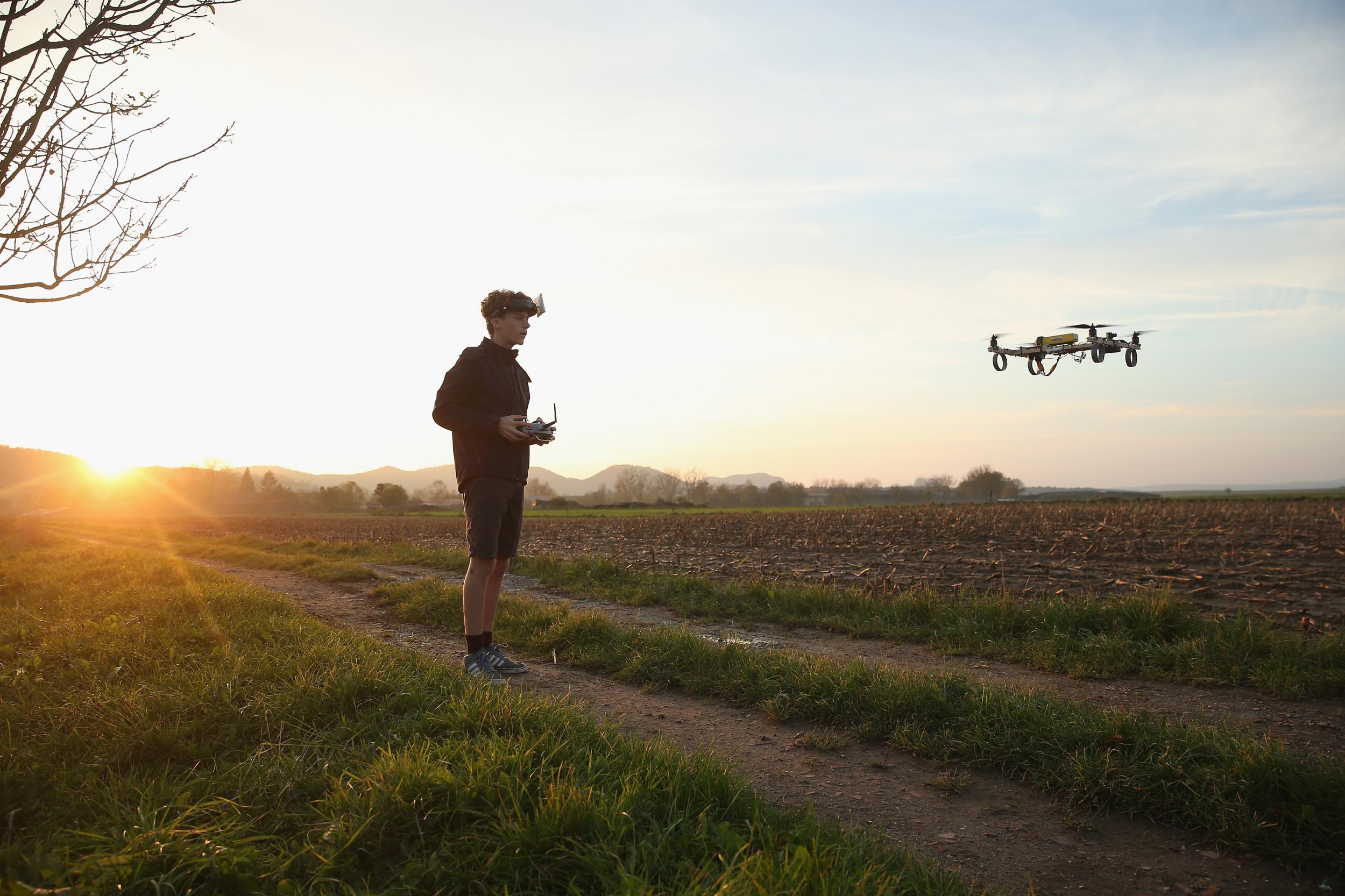US drone owners will soon have to register their devices with the government
The new regulations could be in place before Christmas

Your support helps us to tell the story
From reproductive rights to climate change to Big Tech, The Independent is on the ground when the story is developing. Whether it's investigating the financials of Elon Musk's pro-Trump PAC or producing our latest documentary, 'The A Word', which shines a light on the American women fighting for reproductive rights, we know how important it is to parse out the facts from the messaging.
At such a critical moment in US history, we need reporters on the ground. Your donation allows us to keep sending journalists to speak to both sides of the story.
The Independent is trusted by Americans across the entire political spectrum. And unlike many other quality news outlets, we choose not to lock Americans out of our reporting and analysis with paywalls. We believe quality journalism should be available to everyone, paid for by those who can afford it.
Your support makes all the difference.Owners of drones in the US will soon have to register their machines with the US Department of Transportation, as the federal government attempts to regulate the devices more tightly.
As reported by NBC News, the government will work with drone manufacturers and owners to create a system for drone registration, in new regulations that could be in place in time for Christmas, when drones are expected to be a popular present.
Governments all around the world are growing more concerned about drones, which have recently disrupted air traffic or flown into sensitive areas.
However, the US government is one of the first to take steps to introduce full registration and regulation.
In March this year, the House of Lords called on the EU to introduce a compulsory system of registration, but the plans have stalled.
Currently, the Civil Aviation Authority (CAA) is responsible for regulating the use of drones in the UK, with the rules stating that no unmanned aircraft can be flown within 150 metres of any busy area, or within 50 metres of any vehicle or structure not controlled by the drone operator.
Drone owners in the UK do not have to register their devices with any authorities, although operators need to get permission from the CAA to fly drones for commercial use, or to fly their unmanned aerial vehicles (UAVs) above 400 metres in altitude or further than 500 metres horizontally from themselves.
The civilian use of drones was practically unheard of a few years ago but it has recently exploded in popularity, with sophisticated ready-built drones available for as little as £100 on the high street.
Reliable and advanced drones can be bought fairly cheaply, and a mounted camera that can provide a live video feed to the operator is fairly easy to set up. This increase in popularity has coincided with a number of close calls - in July, a jet with 159 people on board narrowly avoided colliding with a drone as it came into land at New York's John F Kennedy Airport.
The drone reportedly came within 30 metres of the plane - the normal 'safe' distance kept between aircraft is at least 300 metres.
Similar incidents have occurred in the UK - in April, Robert Knowles became the first person in the country to be convicted for a drone-related offence. He was found guilty of flying his drone in restricted airspace over a nuclear submarine facility and letting it get too close to a vehicle bridge, and was ordered to pay a total of £4,300 in fines and damages.
Some American drone users have reacted negatively to the new regulation, with some saying they will not register their devices and claiming the rules will hamper innovation in the booming drone industry.
Others questioned what the registration scheme would solve, while some wondered how it would be implemented practically - many drone owners assemble their devices piecemeal, purchasing batteries, motors and rotor blades from different companies and retailers. Registering pre-built drones at the point of sale is one thing, but regulating more complex UAVs would be a more difficult task for the government and the consumer.
Details of the new regulations have not been announced yet - so it remains to be seen whether registration will apply retroactively to existing drones, or even how the government will define what a 'drone' is, considering the various different sizes and capabilities of drones already on the market.
Time will tell whether the new scheme will be an annoying hoop for drone owners to jump through, or a piece of regulation that could seriously stifle the increasingly popular hobby.
Join our commenting forum
Join thought-provoking conversations, follow other Independent readers and see their replies
Comments